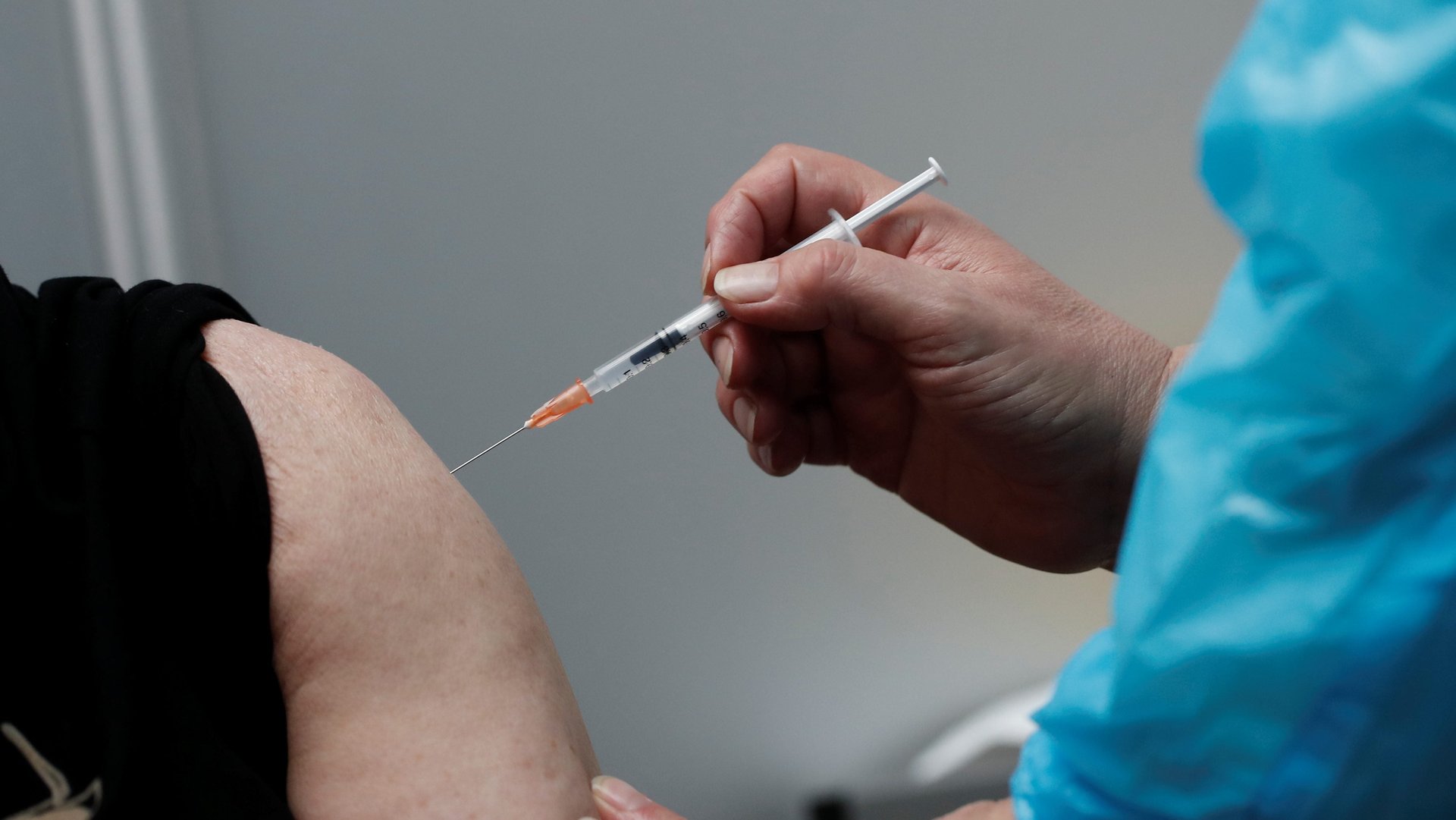Pfizer’s Covid-19 vaccine is set to be one of the most lucrative drugs in the world
Pfizer expects to sell $15 billion worth of Covid-19 vaccines in 2021. That would make it the second-highest revenue-generating drug anytime, anywhere, according to industry reports.


Pfizer expects to sell $15 billion worth of Covid-19 vaccines in 2021. That would make it the second-highest revenue-generating drug anytime, anywhere, according to industry reports.
The maker of the first Covid-19 vaccine to be approved for use in advanced markets has released its earning forecasts for 2021 today. Pfizer expects to earn between $59 billion and $61 billion—up from $42 billion it made in 2020. With the exclusion of the vaccine, the company expects its sales to grow 6% in 2021.
Sales of the vaccine are set to bring in about a fourth of Pfizer’s total revenue this year. That would be nearly as much as its three best-selling products combined—pneumococcal vaccine Prevnar ($6 billion a year), cancer drug Ibrance ($5 billion), and blood thinner Eliquis ($5 billion).
The company is expecting profit margins for the vaccine to be between 25% and 30% which means profits from the vaccine could be around $4 billion. All of Pfizer’s costs and profits from the vaccine are split evenly with BioNTech, the biotech company that helped develop the treatment.
There are is only one drug in the world that sells more—Humira, a prescription medication for arthritis and other uses manufactured by AbbVie. In 2019, Humira’s revenue was nearly $20 billion, and its projected sales for 2020 are $21 billion.
The other two comparable drugs in terms of sales are Merck’s Keytruda and Bristol Myers Squibb’s Revlimid.
Pfizer plans on selling 2 billion doses of the vaccine this year, but that demand should subside in coming years so the revenue of Covid-19 vaccine won’t be stable, Pfizer’s CEO Albert Bourla said on an call with analysts and investors. The company expects to continue profiting from it by selling booster doses, including ones required to shield against new variants of the virus, Bourla said. Further, Pfizer is pursuing more avenues to employ the mRNA technology underlying the vaccine, including a flu vaccine and other therapeutic applications.
During the call, Bourla also noted that once the pandemic period is over, the company expects to improve its margins for the vaccine. This would be due to a combination of overall bigger production volumes and an ability to negotiate prices outside an emergency setting.
Other producers of Covid-19 vaccines, such as AstraZeneca and Johnson & Johnson, which have pledged to sell the vaccine at cost, at least during the emergency, while Pfizer is profiting from it. Unlike Moderna, which is also seeking profits from the vaccine, Pfizer may enforce its patent over the vaccine, a move that has been criticized especially as the company has seen some delays in its delivery of doses in Europe. However, Pfizer also received comparably fewer government funds than its competitors for its vaccine development.
Pfizer’s leadership says it wants to capitalize on the positive reputation it has built through vaccine development to set the terms in coming debates with government regulators about lower drug prices, particularly in the US where medications cost over twice as much as they do in other rich countries.
“We believe that we have generated a good deal of goodwill from congress and public opinion through our Covid-19 vaccine effort, and we hope that we can build on this goodwill by working together on a solution, including making a contribution as an industry, to legislation and executive action that results in lower out-of-pocket cost to patients,” Bourla said.